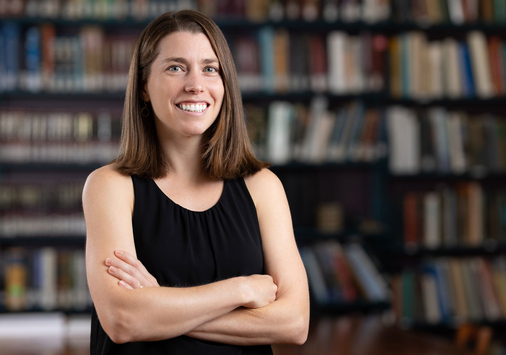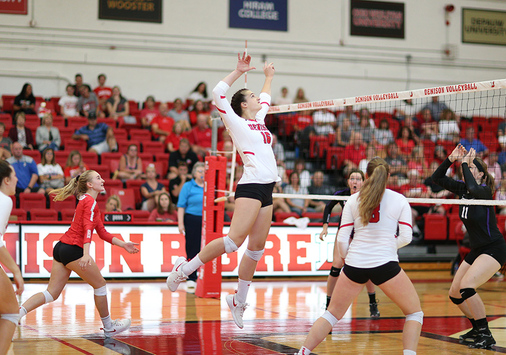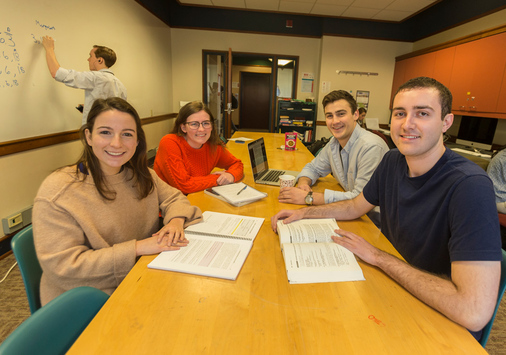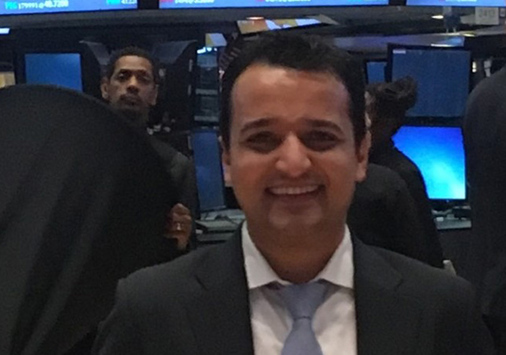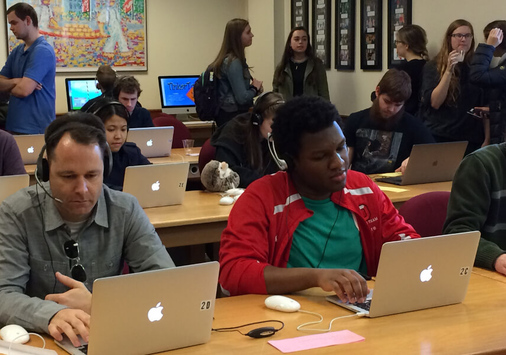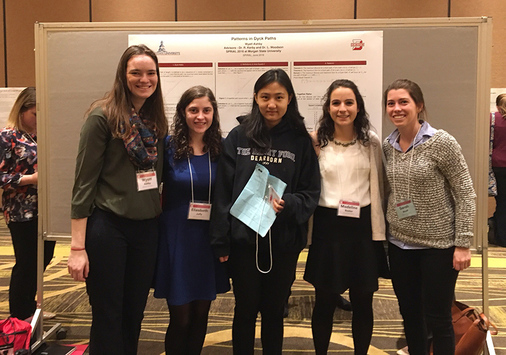Degree Requirements
Information presented from the 2024 - 2025 Academic Catalog.
Mission Statement
The mathematics department prepares our students for their future lives and careers by teaching effective thinking and communication skills in classes that link application and theory, incorporate technological tools, support mathematical independence, and invite open-ended inquiry while working with a diverse group of peers and mentors.
Departmental Guidelines
Students can earn a Bachelor of Arts degree in Mathematics, a Bachelor of Science degree in Mathematics or Applied Mathematics, or a minor in Mathematics or Applied Mathematics. You will learn to think abstractly with an emphasis on conceptual understanding, writing proofs, and creating new mathematical models to solve problems. You will learn to use technological tools to enhance conceptual understanding, visualization, and inquiry. In addition, you will learn communication skills, including listening, writing, and presenting. Interactive learning approaches will include group work, exploratory activities, and various projects.
By the end of their sophomore year, students interested in any Mathematics major should take:
| Code | Title |
|---|---|
| MATH 135 | Single Variable Calculus |
| and/or | |
| MATH 145 | Multi-variable Calculus |
| followed by | |
| MATH 213 & MATH 220 & MATH 300 | Linear Algebra and Differential Equations and Applied Statistics and Introduction to Proofs |
Additionally, by the end of their sophomore year, students interested in any Mathematics major are encouraged to take one of:
| Code | Title | |
|---|---|---|
| CS 109 | Discovering Computer Science | |
| CS 111 | Discovering Computer Science: Scientific Data and Dynamics | |
| or CS 112 | Discovering Computer Science: Markets, Polls, and Social Networks | |
Mathematics Majors
The CORE courses consist of:
| Code | Title |
|---|---|
| MATH 145 | Multi-variable Calculus |
| MATH 213 | Linear Algebra and Differential Equations |
| MATH 220 | Applied Statistics |
| MATH 300 | Introduction to Proofs |
| MATH 395 | Technical Communication I |
| and one of | |
| CS 109 | Discovering Computer Science |
| CS 111 | Discovering Computer Science: Scientific Data and Dynamics |
| or | |
| CS 112 | Discovering Computer Science: Markets, Polls, and Social Networks |
Bachelor of Arts Degree in Mathematics
The minimum requirement for the Bachelor of Arts in Mathematics are the six CORE courses plus four courses; two foundation courses and two modeling courses.
The FOUNDATION courses focus on teaching abstract reasoning and the reading, creation, and writing of rigorous proofs in the study of the foundational structures of mathematics. We regularly offer the following courses.
| Code | Title |
|---|---|
| MATH 400 | Combinatorics |
| MATH 410 | Abstract Algebra |
| MATH 413 | Advanced Linear Algebra |
| MATH 440 | Real Analysis |
| MATH 445 | Topology |
| MATH 447 | Complex Analysis |
The MODELING courses, while not devoid of proofs, include a significant study of how mathematical techniques can be used to model and analyze real-world problems. We regularly offer the following courses.
| Code | Title |
|---|---|
| MATH 415 | Operations Research |
| MATH 420 | Statistical Modeling |
| MATH 422 | Time Series Analysis |
| MATH 425 | Applied Probability |
| MATH 430 | Fourier Analysis |
| MATH 434 | Advanced Differential Equations |
| MATH 435 | Mathematical Modeling |
Bachelor of Science Degree in Mathematics
The minimum requirement for the Bachelor of Science in Mathematics are:
| Code | Title | |
|---|---|---|
| MATH 145 | Multi-variable Calculus | |
| MATH 213 | Linear Algebra and Differential Equations | |
| MATH 220 | Applied Statistics | |
| MATH 300 | Introduction to Proofs | |
| MATH 395 | Technical Communication I | |
| CS 109 | Discovering Computer Science | |
| or CS 111 | Discovering Computer Science: Scientific Data and Dynamics | |
| or CS 112 | Discovering Computer Science: Markets, Polls, and Social Networks | |
| Four Foundation courses, one of which must be: | ||
| MATH 440 | Real Analysis | |
| plus two additional 400-level courses. | ||
Bachelor of Science in Applied Mathematics
The minimum requirements for a Bachelor of Science in Applied Mathematics are:
| Code | Title | |
|---|---|---|
| MATH 145 | Multi-variable Calculus | |
| MATH 213 | Linear Algebra and Differential Equations | |
| MATH 220 | Applied Statistics | |
| MATH 300 | Introduction to Proofs | |
| MATH 395 | Technical Communication I | |
| CS 109 | Discovering Computer Science | |
| or CS 111 | Discovering Computer Science: Scientific Data and Dynamics | |
| or CS 112 | Discovering Computer Science: Markets, Polls, and Social Networks | |
| Four Modeling courses | ||
| Plus two additional 400-level courses, one of which must be MATH 440 | ||
Mathematics Minors
Minor in Mathematics
The minimum requirements for a mathematics minor are:
| Code | Title | |
|---|---|---|
| MATH 145 | Multi-variable Calculus | |
| MATH 213 | Linear Algebra and Differential Equations | |
| MATH 220 | Applied Statistics | |
| MATH 300 | Introduction to Proofs | |
| One 400-level MATH course | ||
| and one of | ||
| CS 109 | Discovering Computer Science | |
| or CS 111 | Discovering Computer Science: Scientific Data and Dynamics | |
| or CS 112 | Discovering Computer Science: Markets, Polls, and Social Networks | |
Minor in Applied Mathematics
The minimum requirements for an Applied Mathematics minor are:
| Code | Title | |
|---|---|---|
| MATH 145 | Multi-variable Calculus | |
| MATH 213 | Linear Algebra and Differential Equations | |
| MATH 220 | Applied Statistics | |
| CS 109 | Discovering Computer Science | |
| or CS 111 | Discovering Computer Science: Scientific Data and Dynamics | |
| or CS 112 | Discovering Computer Science: Markets, Polls, and Social Networks | |
| and two 400-level Modeling courses | ||
Additional Points of Interest
First Class
Students who have not had calculus in high school should start in MATH 130. Students who have had calculus in high school should start in either MATH 135 or MATH 145, depending on their placement score.
400-Level Classes
In order to ensure equitable access to upper-division classes for all students, students may only enroll in up to two 400-level classes per semester.
Research at Denison
Denison offers a number of research opportunities, including funding for summer research projects. The Anderson Foundation and the Denison University Research Foundation (DURF) support qualified students conducting summer research. For off-campus research opportunities in Mathematics, see the various National Science Foundation Research Experience for Undergraduates experiences. Interested students should consult a faculty member as early as possible in the fall semester.
Off-Campus Study
The Department of Mathematics supports students who want to globalize their education by completing some portion of their undergraduate education abroad. Study abroad experiences enhance one's knowledge while learning another culture and way of life. Students can gain valuable international experience that will benefit future career goals and/or graduate school opportunities. Math majors who are fluent in another language will have special advantages in the job market. Funds from institutional, need-based, or merit aid can be applied to the costs of a semester off-campus study with an approved program.
Transfer Credits
Students may take up to two classes outside the department to transfer towards the major at Denison. Additional courses taken outside Denison may accrue credit hours towards graduation, but will not contribute to requirements in the major. Courses taken outside the university must be pre-approved by the department chair for acceptance towards major requirements. Students should provide the department chair with syllabi for the intended courses for department approval at least two weeks in advance of the first day of the class to be transferred. Students may petition the department chair for exceptions to this policy. In particular, transfer students may be eligible to transfer additional courses towards major requirements.
Cross-listed Courses
Students in any Math major may take up to two cross-listed courses to count as an elective requirement in the major. Students in any Math minor may up to one cross-listed course to count as an elective requirement in the minor.


